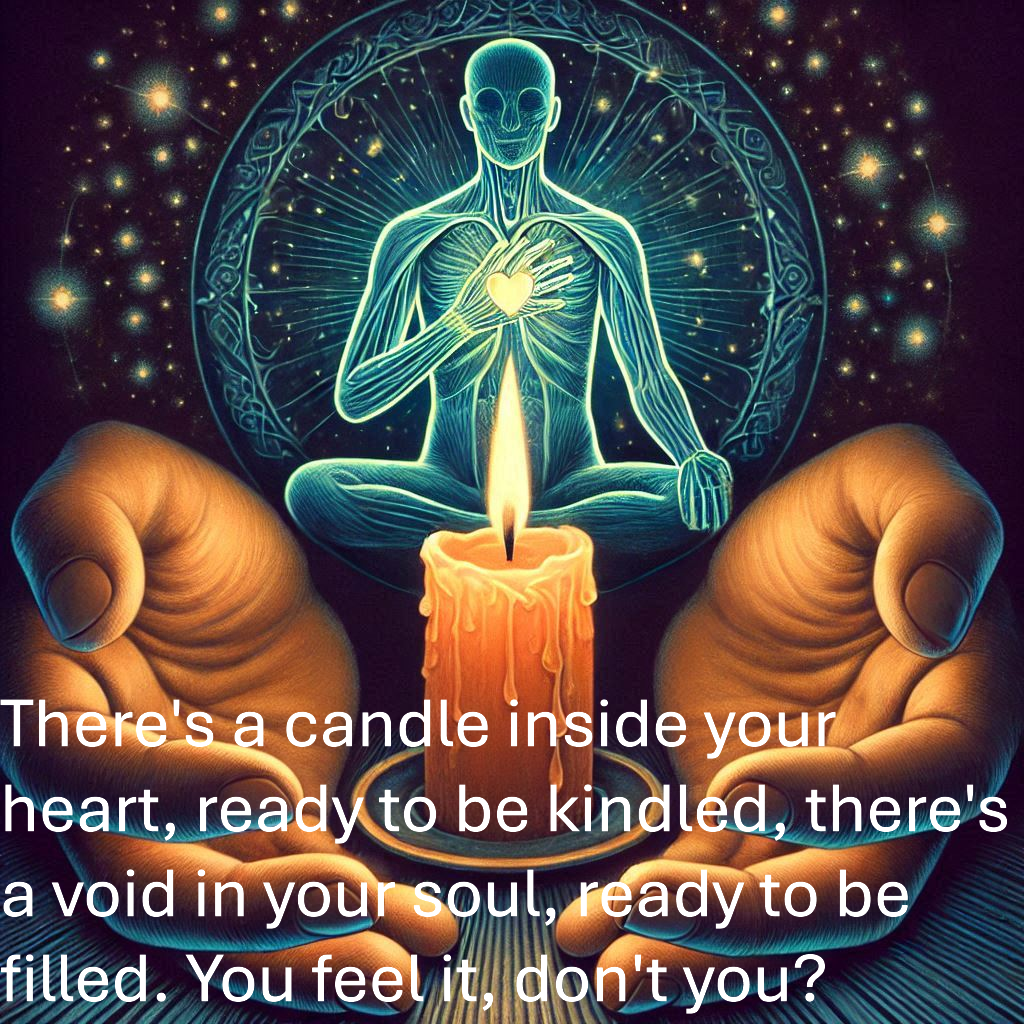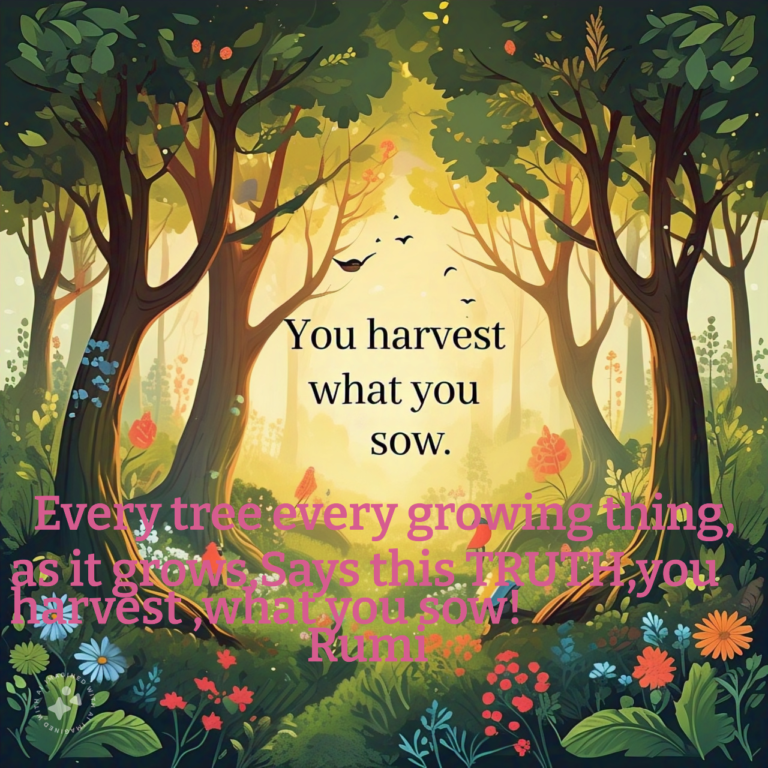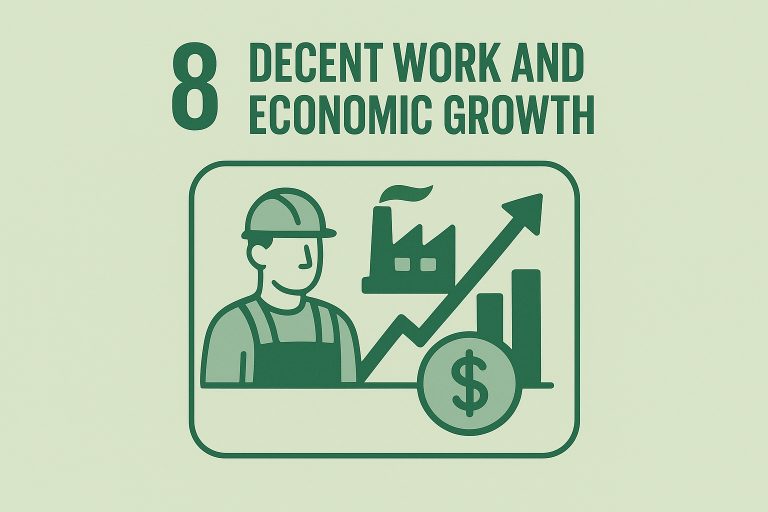“There is a candle in your heart, ready to be kindled. There is a void in your soul, ready to be filled. You feel it, don’t you?” Rumi

Rumi, the 13th-century Persian poet, mystic, and philosopher, is renowned for his profound insights into the human experience and the mysteries of the soul. In the quote, “There is a candle in your heart, ready to be kindled. There is a void in your soul, ready to be filled. You feel it, don’t you?” Rumi invites us to embark on a journey of self-discovery and spiritual awakening, shedding light on the inner depths of our existence.
The Flame Within

- The Inner Light of the Heart
Rumi’s reference to the “candle in your heart” symbolises the innate source of illumination within each of us. It represents the potential for enlightenment, wisdom, and love that resides deep within our beings.
- Igniting the Spark
The imagery of a “candle ready to be kindled” suggests that we possess the power to ignite this inner flame. It’s a call to action, encouraging us to take charge of our spiritual growth and self-awareness.
- Self-Realization
Rumi’s message implies that recognizing the existence of this inner light is the first step toward self-realization. It’s an acknowledgement that we are not defined solely by external factors but by the radiant potential within us.
- The Quest for Meaning
The candle in the heart represents our pursuit of meaning and purpose in life. It’s a reminder that true fulfilment comes from nurturing this inner light.
The Void Within
- The Emptiness of the Soul
Rumi’s reference to the “void in your soul” signifies a sense of emptiness or incompleteness that many individuals experience. It’s the unspoken yearning for something more profound.
- Yearning for Fulfillment
This void within the soul is not a flaw but a natural part of the human condition. It signifies a longing for something greater, a thirst for spiritual fulfilment.
- Inner Hunger
We all feel this void, even if we can’t always articulate it. It’s an inner hunger that drives us to seek meaning, connection, and a sense of wholeness.
The Call to Awareness
- Acknowledging the Inner Stirring
Rumi’s question, “You feel it, don’t you?” serves as a gentle nudge to acknowledge the inner stirring, the longing for something more profound, that resides within us.
- Self-Reflection
Recognizing this inner yearning calls for self-reflection. It prompts us to question our lives and our choices, leading us to a deeper understanding of our spiritual needs.
- The Path to Fulfillment
By embracing and exploring the sensations of the heart’s candle and the void in the soul, we set ourselves on a path to fulfilment, purpose, and a more meaningful existence.
Embracing Rumi’s Wisdom
- The Journey Inward
Rumi’s wisdom encourages us to look within ourselves for the answers to life’s most profound questions. It urges us to tap into our inner resources and to seek the light that can dispel the darkness.
- The Power of Self-Realization
Recognizing the candle in the heart and the void in the soul empowers us to make conscious choices that lead to personal growth and transformation.
- Connecting with Others
As we embark on this inner journey, we may discover that others share similar experiences and longings. Rumi’s wisdom can be a bridge that connects us with fellow seekers on the path to self-discovery.
FAQs (Frequently Asked Questions)
Q1: Who was Rumi, and why is he famous?
A . Rumi, also known as Jalāl al-Dīn Muḥammad Rūmī, was a 13th-century Persian poet, mystic, and philosopher. He is famous for his profound poetry and philosophical insights that explore themes of love, spirituality, and self-discovery.
Q2: What is the significance of the “candle in the heart” in Rumi’s quote?
A . The “candle in your heart” symbolizes the innate potential for inner illumination, wisdom, and love within each individual. It represents the journey of self-discovery and spiritual growth.
Q3: What does Rumi mean by the “void in your soul” in his quote?
A . The “void in your soul” signifies a sense of inner emptiness or incompleteness that many people experience. It represents a yearning for something more profound in life.
Q4: How can one go about kindling the “candle in the heart” and filling the “void in the soul” as suggested by Rumi?
A . Kindling the “candle” and filling the “void” involve self-reflection, self-awareness, and a journey of inner exploration. It may include practices such as meditation, mindfulness, and a deeper understanding of one’s values and aspirations.
Q5: What is the ultimate goal of recognizing the “candle in the heart” and the “void in the soul” in Rumi’s philosophy?
A . The ultimate goal is self-realization, personal growth, and spiritual fulfilment. By acknowledging these inner aspects, one can make conscious choices that lead to a more meaningful and purposeful life.
Conclusion
Rumi’s quote, “There is a candle in your heart, ready to be kindled. There is a void in your soul, ready to be filled. You feel it, don’t you?” encapsulates the timeless message of self-discovery and spiritual awakening. It reminds us that we all carry within us the potential for inner illumination and fulfilment, and the yearning for something deeper. Acknowledging these aspects of our existence is the first step on a profound journey of self-realisation and personal growth. Rumi’s words continue to inspire and guide us as we explore the depths of our hearts and souls, seeking the light that dispels the shadows of uncertainty and the fulfilment that quenches the inner thirst.
Rūmī (born c. September 30, 1207, Balkh [now in Afghanistan]—died December 17, 1273, Konya [now in Turkey]) was the greatest Sufi mystic and poet in the Persian language, famous for his lyrics and for his didactic epic Mas̄navī-yi Maʿnavī (“Spiritual Couplets”), which widely influenced mystical thought and literature throughout the Muslim world. After his death, his disciples were organized as the Mawlawiyyah order.
Don’t grieve, Anything You Lose Comes Around in Another Form: Rumi

